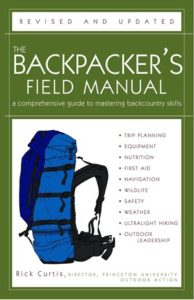In Dr. Jerome Groopman’s “How Doctors Think” there is a tale of medical students from two different schools being told that two entirely different approaches to a problem are the gold standard. As they started to practice medicine they realized that, in fact, there were several approaches to this problem. Their education would have served them better, they observed, if it had prepared them for the uncertainty inherent in medicine, and encouraged them to keep an open mind.
In both urban pre-hospital and wilderness medicine there are areas where experts argue best practices. Femur traction splints, MAST pants, the value of IV’s, lights and sirens and air transport are only a few of the urban practices that are taken for granted, yet are controversial. On the wilderness side we also debate traction splints, and tourniquets, pressure immobilization bandages for Elapid snakebite, whether we should “clear a spine”, reduce a dislocation, or straighten a fracture.
This can cause uncertainty in the WFR, well-trained but with limited experience, who is challenged by someone with a different approach to a problem. Do I really know my stuff? Might I harm the patient? As well, the WFR may be making a medical decision in the context of all the variables inherent in wilderness leadership: terrain, weather, unknown evacuation support, unreliable communication and their responsibilities to the rest of their expedition members.
One of the aspirations of NOLS Founder Paul Petzoldt was to develop leaders with judgment; the ability to reason in the midst of uncertainty.
We all know people who are dogmatic preachers – confident and passionate that their technique or knowledge is the final word. Yet, you know the saying, “If you step in dogma, your shoes stink.”
There can be many ways to solve a problem, many of them workable, none of them perfect. Without flexibility and breath of understanding our judgment may be limited. Teaching one way to manage a problem might be educationally sound for a beginner, but it could leave the wilderness leader, on their own and reasoning in uncertaintly, with limited options.
To be an effective WFR you need to know how to manage a problem and make a decision based on treatment principles, which you can adapt to the situation at hand. Novices need cookbooks, with treatment principles that are sound recipes. It’s our job, both in wilderness medicine and wilderness education, to show students recipes that work, and to help them be a thinking cook.
Tod


